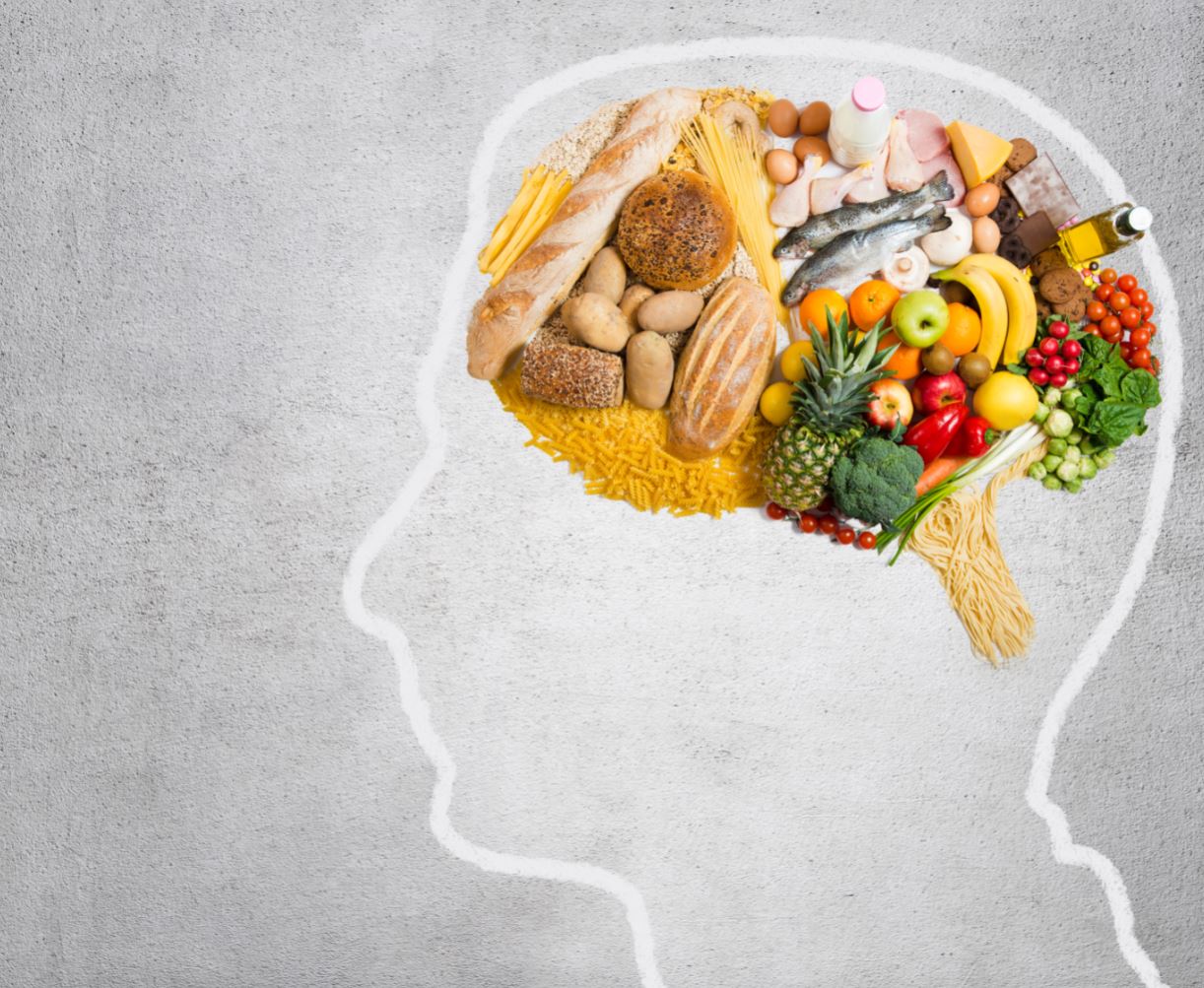
People tend to understand the link between food and physical health very well, but how can eating well help our mental health?
We all know that filling a car with good quality fuel is essential for it to run efficiently and our brains and bodies are no different. Feeding ourselves nutritionally rich foods at regular intervals helps us to function at our best, including helping our mental health.
Protect the brain
Eating foods rich in vitamins, minerals and antioxidants nourishes our brains, protecting them from something called "oxidative stress’", which can occur when free radicals (a type of molecule in our bodies) are produced by the body’s use of oxygen. The biochemistry is relatively complex, but, essentially, we rely on our antioxidant mechanism to mop up excessive free radicals, thereby protecting us from cellular damage and imbalance in our physiology.
Studies have shown a correlation between diets high in refined sugars and impaired brain function, as well as a worsening of symptoms associated with mood disorders, such as depression.
Feel it in your gut
In many ways, the gut is like a second brain in the body. Lined with a hundred million nerve cells, it is where approximately 90% of our serotonin is produced. Serotonin is essential for regulating appetite, sleep and mood.
"Good" bacteria, or probiotics, have a role in producing serotonin and other vital neurotransmitters, as well as protecting the lining of the gut, limiting inflammation, and helping to activate neural pathways that travel directly between the gut and the brain.
Research in this area is emerging and ongoing, but some studies show that when people take probiotics (supplements containing these "good" bacteria), they report a reduction in their anxiety levels and their perception of stress, as well as an improvement in their mental outlook, compared with people who did not take probiotics.
Avoid getting hangry
When we eat, the carbohydrates, proteins and fats in our food are digested and broken down into - among other things - glucose, amino acids and fatty acids. Our bodies then absorb these nutrients and use them for energy.
In between meals, the level of nutrients in our bloodstream starts to drop. Some of our organs and tissues can use a variety of nutrients to function, but our brains are critically dependent on glucose. A drop in blood-glucose levels can make us feel more irritable, make it harder to concentrate or cause us to make silly mistakes. Unsurprisingly then, if our blood-glucose level falls far enough, the brain interprets this as a critical situation and sends a message to other organs to release hormones that will help to increase the amount of glucose in the bloodstream. Two of these hormones are adrenaline and cortisol, both of which are stress hormones that are also released when we’re in the grip of the "fight or flight" response.
Eating meals and snacks at regular intervals and at roughly the same time every day helps to give the body a continuous, stable source of fuel, keeping blood sugar levels steady and our mood stabilised.
Choose good mood foods
A number of foods are associated with supporting good mental health and brain health. Below, you'll find just a few to get you started:
Wholegrains
The brain needs a steady source of energy, in the form of glucose, to work. Wholegrains (such as brown rice or pasta; wholegrain cereals; granary bread and so on) have a naturally low glycaemic index, which means they release glucose slowly into the bloodstream.
Berries
These colourful fruits are rich in naturally-occurring plant compounds called phytochemicals, which research shows have a significant antioxidant action that can help to reduce oxidative stress. Given that berries are also high in fibre and vitamin C, they’re a great addition to your diet. Berries with the highest levels of antioxidants include cranberries, blueberries and blackberries.
Green, leafy vegetables
Research suggests these plant-based foods may help to slow cognitive decline. Leafy greens such as kale, spinach and broccoli are rich in brain-healthy nutrients like vitamin K, folate and beta carotene.
Oily fish
Omega-3 fatty acids are healthy unsaturated fats that have been linked with improving brain health, lowering blood pressure and stabilising mood. These nutrients can be found in salmon, mackerel, sardines and tuna.
Walnuts
Nuts are great sources of protein and fat, but, in such a broad family, there are some that are better for brain health than others. Walnuts, for example, have a high concentration of DHA, which is a type of Omega-3 fatty acid that has been shown to improve cognitive performance in adults and protect against cognitive decline.
Fermented foods
Fermented foods (like yoghurt, kimchi, sauerkraut and so on) are rich in probiotics which help to keep gut bacteria in check. Research is new and ongoing into how changing the body’s bacterial balance might alter brain activity, especially as it relates to mood, but, for now, it certainly won’t harm and could really help.


